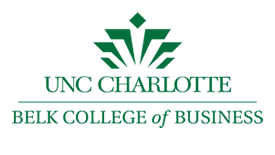Stable is the word for 2016 state economy

The North Carolina economy will continue modest growth in 2016, UNC Charlotte economist John Connaughton reported today in the Babson Capital Management/UNC Charlotte Economic Forecast.
“Signs are pointing to a stable new year for the N.C. economy. In 2016, the North Carolina economy is expected to increase by an inflation-adjusted rate of 2.5 percent over the 2015 level,” Connaughton said. “This growth in 2016 follows four years of steady growth in North Carolina Gross State Product.”
Connaughton said, “Several diverse factors are coming together and have caused both the U.S. and North Carolina economies to generate stronger growth during the second half of 2015.”
“First, the ‘Fed’ has continued to keep interest rates low during 2015. Second is the continuation of low oil prices. Gas prices for regular blend peaked in early June at around $2.74 per gallon. By the end of November, the average had dropped to $1.97. This $.77 decline since June puts an additional $225 billion of discretionary income into consumers’ pocketbooks on an annual basis. This increase in consumer discretionary income should help ensure a good Christmas shopping season,” Connaughton said.
During his quarterly economic forecast, Connaughton highlighted three major areas to watch in 2016.
State economic growth
For 2016, Connaughton said that first quarter N.C. Gross State Product (GSP) is expected to increase at an annualized real rate of 2.6 percent. During the second quarter, GSP is expected to increase at an annualized real rate of 2.7 percent. In the third quarter, GSP is expected to record an annualized real growth rate of 1.8 percent. In the fourth quarter of 2016, GSP is expected to increase at an annualized real rate of 2.8 percent. Thirteen of the state’s 15 economic sectors are forecast to experience output increases during 2016. The sector with the strongest expected growth is business and professional services with a projected real increase of 4.5 percent.
Federal interest rates and consumer confidence
The Federal Reserve meets in mid-December to talk about interest rates, and Connaughton expects the first of several interest rate increases will begin. “Increases in interest rates will be minimal and as a result and shouldn’t affect consumers being able to buy a car or a house.” Connaughton said, “On the negative side, we have seen a decline in consumer confidence in the last month. There was a slight decline in October 2015 to 99.1 followed by a much larger decline in November 2015 to 90.4. Some of this recent decline could be a result of the terrorist attacks in Paris and the uncertainty created in the days following the attacks. We will have to wait for the December survey to see if consumer confidence is a potential problem going forward.”
Changing workforce
Connaughton discussed the evolution of the U.S. and N.C. workforce. He expects the state to gain 111,200 net jobs during 2016 and end 2016 with lower unemployment. However, Connaughton said the future of the workforce is uncertain with the continued exodus of the “boomers” and the fewer numbers of workers in future generations. “Because of several long-term trends that are now emerging, we need to recalibrate our sense of what level of real GDP growth we can expect. There are a number of factors responsible for slowing down the potential long-term growth rate related to the aging of the labor force,” he said. “Baby boomers are reaching retirement age and when they retire, they reduce their level of purchases, thus reducing overall consumption and lowering economic growth. Second, when baby boomers retire, there is a reduction in the absolute size of the labor force, thus reducing potential GDP and lowering economic growth. Third, labor productivity has averaged only 1.3 percent growth per year since 2007. This is down considerably compared to the 2000 to 2007 average of 2.6 percent.”
“We are at the beginning stages of this trend, which will be with us for several decades,” Connaughton said.
The UNC Charlotte economist presented his quarterly forecast to members of the Charlotte business community and the media at a luncheon held at UNC Charlotte Center City. The forecast is funded by Babson Capital Management LLC.